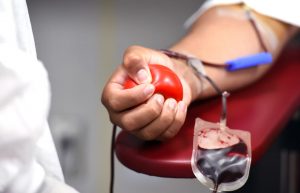Haemophilia A:

A simple and affordable point-of-care test kit has been indigenously developed by the National Institute of Immunohaematology for early diagnosis of genetic bleeding disorders haemophilia A and Von Willebrand Disease.
- Haemophilia A is a hereditary bleeding disorder that happens when your blood doesn’t clot as well as it should
- When you bleed, a series of reactions take place in the body that help blood clots form. This process is called the coagulation cascade.
- It involves as many as 20 different special proteins called coagulation, or clotting, factors.
- You may have a higher chance of excess bleeding if one or more of these factors are missing or are not functioning like they should.
- Factor VIII (eight) is one such coagulation factor.
- Hemophilia A is the result of the body not making enough factor VIII.
- It is usually caused by an altered gene being passed on to a child by their parents (inherited).
- Men with the altered gene will have symptoms.
- Women with the altered gene (carriers) can have symptoms, but this is less common, and the symptoms are less severe than in men.




